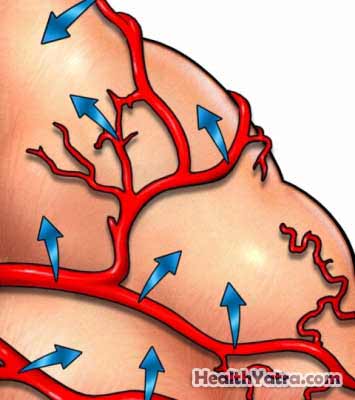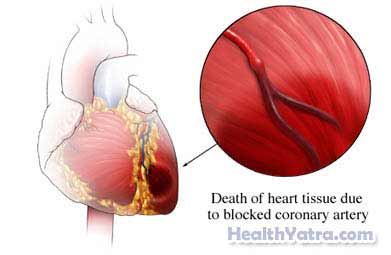Definition
Computed tomography angiography (CTA) is a specialized x-ray that examines blood flow in blood vessels when they are filled with a contrast material. Contrast material is a substance that makes the blood vessels show on an x-ray. Computed tomography (CT) uses a complex machine to take x-rays from many different views, producing detailed two-dimensional images that can be combined by a computer to form three-dimensional images.
CTA can be used to view blood vessels throughout the body. It is most commonly used to study the:
- Brain
- Heart
- Lungs
- Kidneys
- Legs or arms

Reasons for Test
This test is used to help doctors identify diseased, narrowed, enlarged, and blocked blood vessels and locate where internal bleeding may be occurring. Some specific uses include:
- Detecting atherosclerosis, a narrowing of the arteries
- Detecting an aneurysm, a ballooning out of a section of a blood vessel
- Examining arteries in the lungs to check for blockage of a blood vessel
- Evaluating disease in kidney arteries

Possible Complications
Problems from the procedure are rare, but all procedures have some risk. Your doctor will review potential problems, like:
- Allergic reactions to contrast material
- Excess bleeding
- Kidney damage
What to Expect
Prior to Test
Prior to the surgery, the doctor will do a physical exam.
Talk to your doctor about any medications, herbs, or supplements you are taking. You may have to stop certain medications, food, or beverages before the test.
At the care center:
- You will remove your clothes and put on a gown or robe.
- You will remove all jewelry, hair clips, dentures, and other objects that could show on the x-rays and make the images hard to read.
Description of Test
An intravenous line (IV) is placed in a vein, and you will lie down on a narrow table. Pillows and straps may be used to keep you in a certain position. The part of your body that will be studied is moved inside the opening of the CT machine, and a test image is taken. You will be given a small amount of contrast material through the IV to check how long it takes to get to the area to be studied. Next, the IV is connected to an automatic injector and contrast material is injected. Then, the scan begins.
You must stay still during the scan. The technologist may ask you to hold your breath for 10-25 seconds to ensure that the images are not blurred by any movement. It only takes seconds to record all the images needed.
After Test
The images are checked. If needed, some are repeated.
After the procedure, be sure to follow your doctor’s instructions. During the hours after the procedure, drink extra fluids to help flush the contrast material from your body.
How Long Will It Take?
20-60 minutes however, most of the time is spent setting things up.
Will It Hurt?
Although the procedure is not painful, you may feel warm and flushed when contrast material is injected.
Results
The radiologist will look at the images and report the findings to your doctor, usually within 24 hours. Your doctor will discuss the findings with you and any treatment needed.
Call Your Doctor
After the test, call your doctor if any of the following occurs:
- Signs of allergic reaction, including flushing, hives, and itching
- Swollen or itchy eyes
- Difficulty breathing or a feeling of tightness in your throat
- Nausea
If you think you have an emergency, call for medical help right away.
